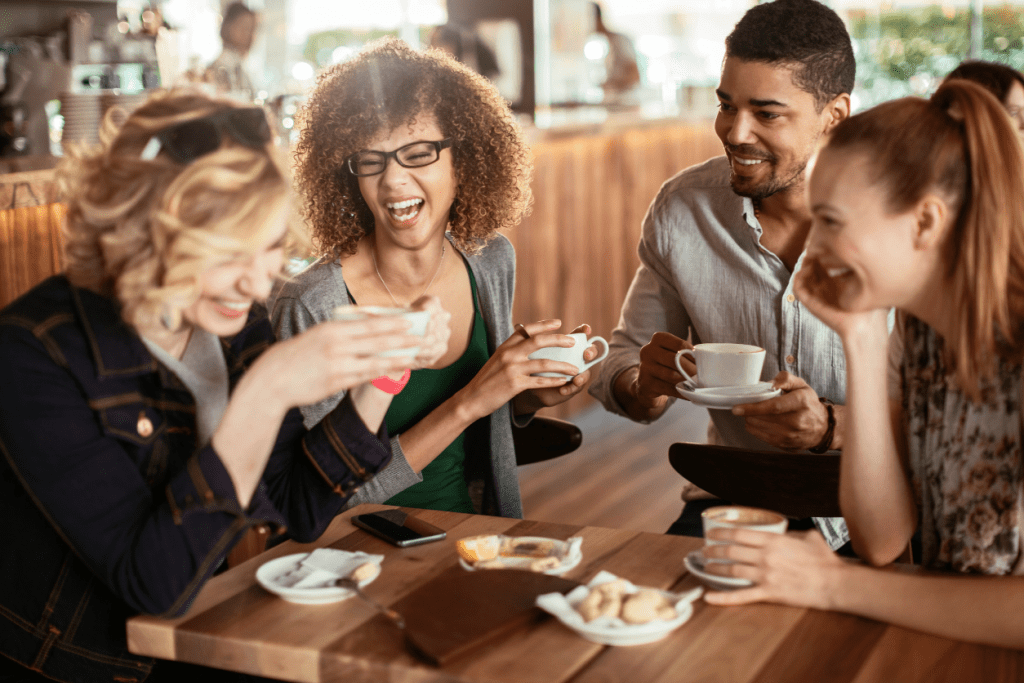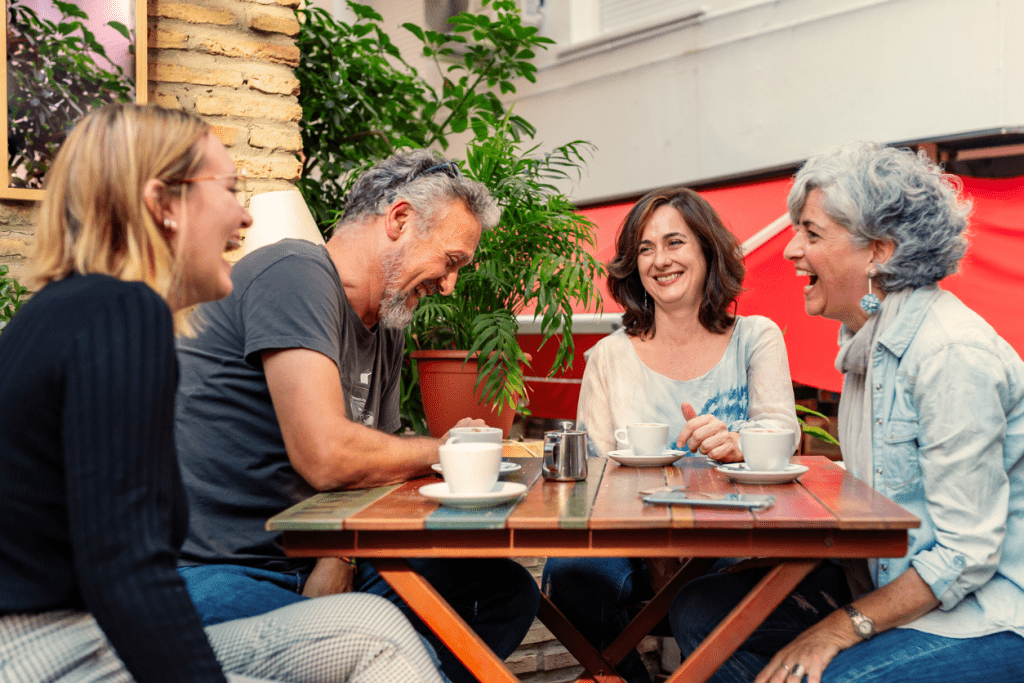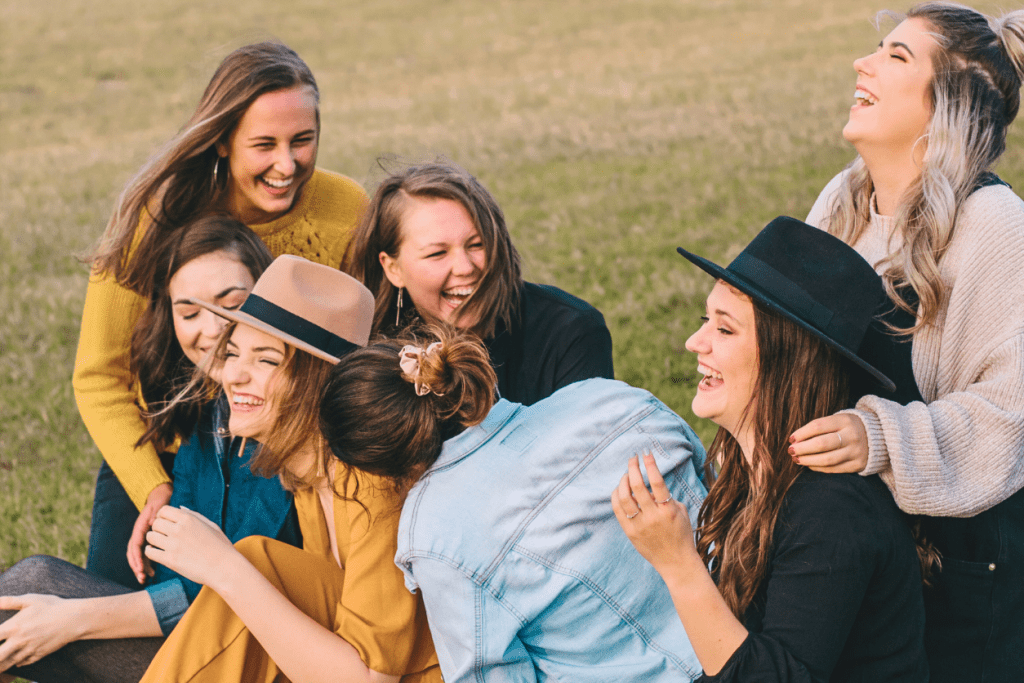The power of connection in brain injury recovery

Recovering from a brain injury is a journey that extends beyond just the physical healing. It’s about the connections we build and the support we receive from those around us. Studies show that individuals with support networks are more likely to experience better physical and emotional outcomes during their recovery. One example is Sarah who shared her personal story with us, her recovery was fuelled by the unwavering support of family, friends, and community.
Why connection matters
Isolation can be a challenge to overcome for individuals recovering from brain injury. Feelings of loneliness can magnify anxiety, depression, and stress, this can negatively impact an individual’s recovery. Connection can help build resilience and growth. Whether it’s a simple gesture of encouragement, a sounding board on the other end of the phone or the impact of a support network, connection can be a key to navigating life after a brain injury.
A strong support system can:
- Reduce feelings of isolation
- Boost motivation and emotional well-being
- Provide practical assistance in daily tasks
- Encourage participation in rehabilitation and therapy.
Connections with others remind us that we are not alone, and that healing is not a solitary process.

The science of love and emotional support
Research shows that emotional support from loved ones, friends, and caregivers can reduce stress by lowering cortisol levels. Cortisol levels are the hormone associated with stress and inflammation. This can in turn improve immune function and accelerate the healing process. Emotional support can also foster motivation by creating a sense of belonging and purpose. This can help to inspire individuals to stick to their treatment plans and boosts overall mental well-being. It is also worth noting that the release of oxytocin, often called the “love hormone,” during moments of emotional connection, promotes relaxation and a sense of safety, which are essential for recovery.
Types of connections
- Family and friends: The support of loved ones is often the foundation of recovery. They offer emotional reassurance, assist with everyday tasks, and help maintain a sense of normalcy.
- Peers: Connecting with others who have lived experiences can be transformative. Peer support groups provide a safe space to share experiences, exchange advice, and celebrate milestones. Check out our Facebook group to connect with peers online.
- Professional teams: Healthcare professionals, support workers and therapists play an important role in providing guidance and tailored interventions. These relationships foster trust and empower individuals to take active steps in their recovery.
- Community connections: Engaging with local organisations or online communities can expand one’s support network. Programs like our Reconnection Groups offer emotional and peer support.
Practical tips to strengthen bonds
Try to be more open in your communication. Be honest about your needs and feelings with your support network. Clear communication can help foster understanding and strengthen relationships. Join one or two peer groups, either in person or online, where you can connect with others who share similar experiences. This can help to reduce feelings of isolation and provide valuable insights. Involve your support network in celebrating milestones, no matter how small. Progress, even in its smallest form, is worth recognition. Participate in activities that encourage interaction, such as family dinners, group outings, or hobby classes. These shared experiences can help to deepen connections and well-being.

Healing after a brain injury is not a journey you have to take alone. The power of connection lies in the support, understanding, and encouragement we receive from others. Whether it’s leaning on family, building friendships, engaging with peers, or working closely with healthcare professionals, these connections can make all the difference in recovery.
Take a moment to reflect on your own support network. Who are the people that lift you up, and how can you strengthen those bonds? By seeking out and nurturing connections, you can unlock the transformative power of support on your journey to recovery. If you’ve got questions or need advice, support or further information, get in touch with us today. We’d love to help. Call us: 1800 673 074
For more information view our factsheets:
- Support, friendship, reducing chances of another injury: https://synapse.org.au/fact-sheet/support-groups/
- Social and recreational activities: https://synapse.org.au/fact-sheet/social-and-recreational-activities/
- Social skills and confidence: https://synapse.org.au/fact-sheet/social-skills-and-confidence/
- Steps to independence: https://synapse.org.au/fact-sheet/steps-to-independence/
Sources:
Peer support groups after acquired brain injury: a systematic review: https://www.tandfonline.com/doi/full/10.1080/02699052.2020.1762002?
Peer support interventions for individuals with acquired brain injury, cerebral palsy, and spina bifida: a systematic review: https://bmchealthservres.biomedcentral.com/articles/10.1186/s12913-019-4110-5
The Role of Social Support in Coping with Psychological Trauma: An Integrated Biopsychosocial Model for Posttraumatic Stress Recovery https://link.springer.com/article/10.1007/s11126-022-10003-w?
Social Relationships and Mortality Risk: A Meta-analytic Review: https://journals.plos.org/plosmedicine/article?id=10.1371/journal.pmed.1000316#s4
Social Support and Health: A Review of Physiological Processes Potentially Underlying Links to Disease Outcomes: https://citeseerx.ist.psu.edu/document?repid=rep1&type=pdf&doi=e24933ff8337fc1e9ee3bbe95f996a56d1d787bf
Neuroendocrine perspectives on social attachment and love: https://www.sciencedirect.com/science/article/abs/pii/S0306453098000559?via%3Dihub